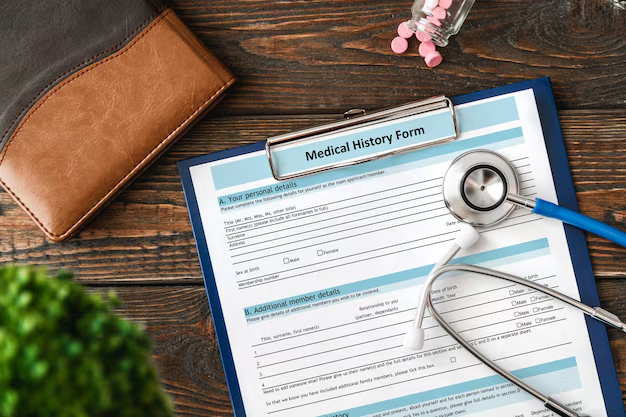Your Guide to How Do You Get a New Medicare Card
What You Get:
Free Guide
Free, helpful information about Medicare Insurance and related How Do You Get a New Medicare Card topics.
Helpful Information
Get clear and easy-to-understand details about How Do You Get a New Medicare Card topics and resources.
Personalized Offers
Answer a few optional questions to receive offers or information related to Medicare Insurance. The survey is optional and not required to access your free guide.
Need a New Medicare Card? Here’s How to Get One
For millions of Americans, the Medicare card is an essential piece of their healthcare puzzle. If you've misplaced, damaged, or have yet to receive your card, you're likely eager to fix this issue promptly. The good news is, obtaining a new Medicare card is a straightforward process, whether you prefer handling matters online, via phone, or in-person. Let's explore the steps to ensure you’re back with this crucial healthcare tool in no time.
Replacing Your Medicare Card Online
In today's digital age, the easiest and quickest way to request a replacement Medicare card is online. Here's how to do it:
Visit the Social Security Administration (SSA) website. You need to log in to your my Social Security account. If you don’t have one already, you’ll need to create an account. Don’t worry; it’s a secure and simple process.
Navigate to the 'Replacement Documents' section. After logging in, find this section, which will guide you through ordering a new Medicare card.
Fill out the necessary information. Ensure all your details are correct and submit the request.
Once you've done this, expect your card to arrive by mail within 30 days. It's that easy.
Ordering By Phone or In-Person
If the online process isn't for you, you can obtain a new card by calling or visiting:
- Phone: Call 1-800-MEDICARE (1-800-633-4227) for assistance. For TTY users, dial 1-877-486-2048.
- In-person: Visit your local Social Security office. Bring identification and be prepared for longer wait times.
Traveling Down the Financial Aid Avenue
While on this journey to replace your Medicare card, why not take a moment to explore other government aid programs? Many Americans are unaware of the various assistance programs available that align with Medicare. Here's a pathway to consider:
Financial Assistance Programs: If you're facing financial difficulties, various programs can provide relief. Programs like Medicaid, Supplemental Security Income (SSI), and Extra Help (for prescription drug costs) can significantly reduce healthcare expenses.
Debt Relief Options: Living on a fixed income can be challenging. Debt relief programs can help manage or eliminate debts, providing peace of mind.
Educational Grants: Returning to or continuing education can open new doors. Grants and scholarships are available for mature students seeking new skills, potentially leading to better financial stability.
Tips for Protecting Your Medicare Card
To minimize future hassles, consider these measures to protect your Medicare card:
Store it securely: Keep your Medicare card in a safe place. Consider using a wallet or purse with RFID protection to prevent electronic theft.
Limit exposure: Only carry your Medicare card when attending healthcare appointments to reduce the risk of loss.
Monitor your card’s usage: Regularly check your Medicare summary notices for any suspicious activity to catch misuse early.
Navigating the world of Medicare might seem daunting at first glance, but armed with the right information, you're empowered to take charge. If you find yourself in a situation where you need more help than a new card, remember: programs are out there to assist you. Whether it's financial insights, debt relief, or educational pursuits, knowledge is your ally in ensuring a secure and healthy future.
Explore Other Helpful Resources:
- ✅ Medicaid: Assistance with medical expenses for those with limited income and resources.
- 💊 Extra Help Program: Reduces drug costs for Medicare beneficiaries.
- 🏛️ Supplemental Security Income (SSI): For individuals with limited income and resources, providing additional income.
- 📝 Debt Management Plans: Personalized plans to help manage debt effectively.
- 🎓 Federal Pell Grant: Aid for undergraduates who haven't earned a degree yet, offering up to $6,495 annually.
- 💡 Lifeline Assistance Program: Discounts on phone or internet services to aid low-income households.
Always remember, these programs exist to support you through life's financial hurdles, paving the path to a more secure and stable future.
What You Get:
Free Medicare Insurance Guide
Free, helpful information about How Do You Get a New Medicare Card and related resources.

Helpful Information
Get clear, easy-to-understand details about How Do You Get a New Medicare Card topics.

Optional Personalized Offers
Answer a few optional questions to see offers or information related to Medicare Insurance. Participation is not required to get your free guide.


Discover More
- Am I Elgible For Medicare
- Am I Enrolled In Medicare
- Am I Qualified For Medicare
- Are Adult Diapers Covered By Medicare
- Are Chemotherapy Drugs Covered By Medicare Part d
- Are Colonoscopies Covered By Medicare
- Are Covid Tests Covered By Medicare
- Are Cpap Machines Covered By Medicare
- Are Cpap Supplies Covered By Medicare
- Are Dental Implants Covered By Medicare
